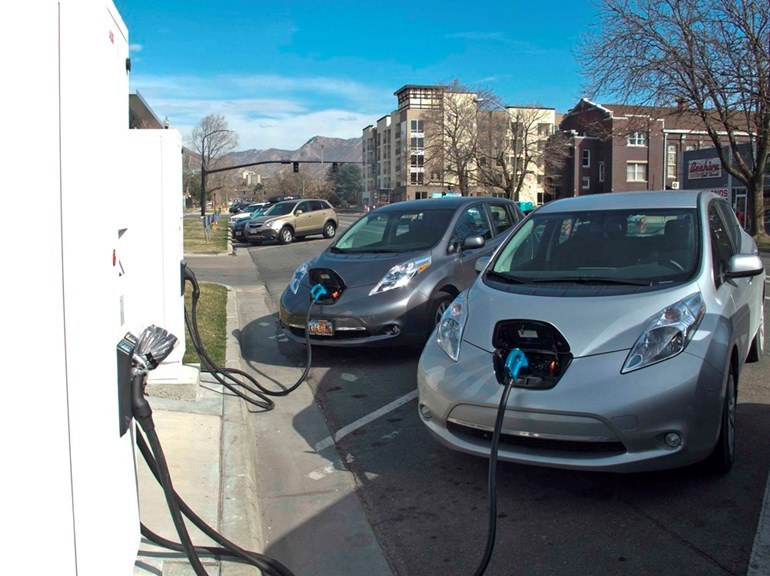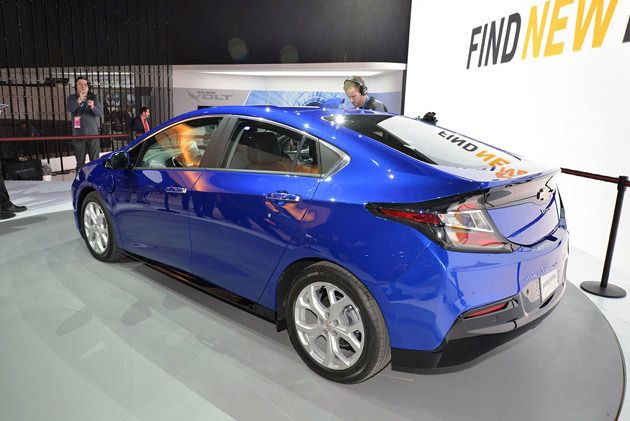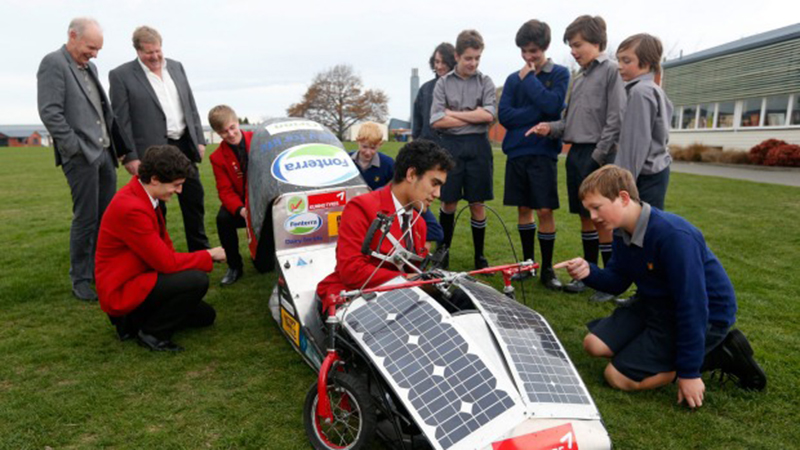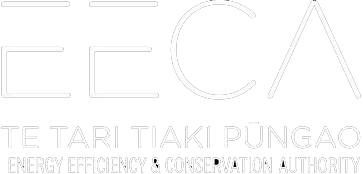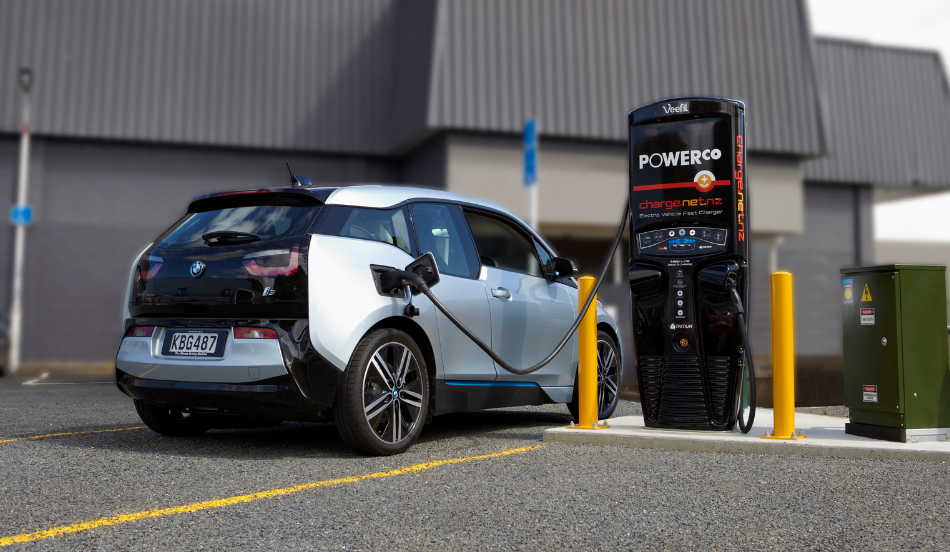
Powerco staff are helping drive New Zealand towards an electric vehicle (EV) future. Leading by example, in 2016 Powerco joined other high-profile businesses in committing to convert 30% of its fleet to electric. And it’s well on the way to achieving that, with 26% of its fleet now electric.
Powerco Business Development General Manager Eric Pellicer says staff have enthusiastically got behind the move. “As the majority of EVs are pool cars, all staff use the vehicles. The feedback has been positive. They’ve shown a keen interest in the new technology.” Powerco’s vehicle selection process involved talking with employees to find out what they required to do their job. This inclusive approach helped gain support for the introduction of EVs.
The company has about 70 vehicles, of which 19 are electric or plug-in hybrids. The vehicles are Mitsubishi Outlanders (PHEV), Hyundai Ioniqs and Volkswagen e-Golfs. Mr Pellicer says as some Powerco staff use utes to travel to remote areas for work, often over rugged terrain, until there is a viable electric ute option, the company will focus on swapping its pool vehicles to electric. “If EV options in these vehicle classes become available in New Zealand, we may consider them in future fleet procurements. However, it is unlikely that there will be a full EV fleet for Powerco. This is because we provide an essential service and need to operate in locations and at times where electric charging may not be possible.”
As geographically the largest electricity distribution business in New Zealand, Powerco has been pivotal in increasing the number of chargers across its network area. In conjunction with ChargeNet NZ, charging stations have been installed across Bay of Plenty, Coromandel, Wairarapa, Manawatu, Taranaki and Whanganui. Increasing the number of charging stations encourages the uptake of electric vehicles. It also benefits Powerco, which has offices in New Plymouth, Whanganui, Palmerston North, Tauranga and Wellington. While the sites have their own charging facilities, the public charging stations make it easier for employees who often travel long distances for work. As an electricity distributor, Powerco needs to make sure the network has the capacity for the increase in electric vehicle use. When people charge their vehicles at home, it increases the amount of electricity flowing through the network. “We’re intent on preparing the electricity network for our customers to ensure it is ready for the inevitable transition to electric vehicles,” Mr Pellicer said.
Powerco has undertaken a series of trials to gain a better understanding of how charging requirements will impact the electricity network. An example is the collaboration project with a Taranaki Maori health provider. Powerco installed an electric vehicle charging station at the work site and provided a Volkswagen e-Golf for staff to use for 12 months. “The feedback from their staff was also positive on the experience of drive and charging EVs. While we gathered important data for our own use, we also wanted the trial to benefit the community at large.”
Mr Pellicer says if people are thinking about transitioning to an EV, they should consider their needs before affordability. “The availability of different classes of EV – both domestically and from import markets – is growing, so it’s better to find a vehicle that will get a lot of use rather than one that ‘ticks’ the EV box.”
Powerco is New Zealand’s second-largest electricity utility and gas distribution utility with around 1.1m customers (across 446,000 connections) connected to its networks. Powerco’s electricity networks are in Western Bay of Plenty, Thames, Coromandel, Eastern and Southern Waikato, Taranaki, Whanganui, Rangitikei, Manawatu and the Wairarapa. Its gas pipeline networks are in Taranaki, Hutt Valley, Porirua, Wellington, Horowhenua, Manawatu and Hawke’s Bay.

